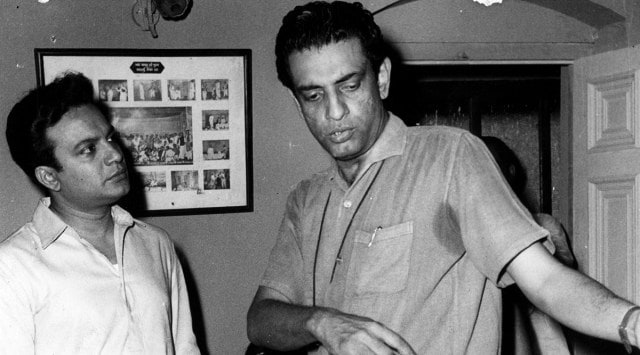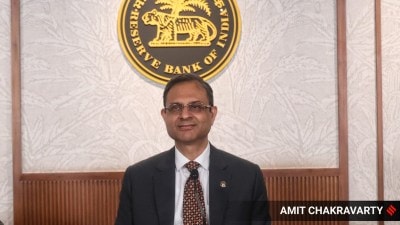Delhi High Court upholds order holding Satyajit Ray as ‘first owner’ of copyright in Bengali film ‘Nayak’
The plaintiff RDB and Co HUF had said in its lawsuit before the single judge that R D Bansal had commissioned Satyajit Ray to write the screenplay and direct the film and claimed that the copyright in the film vested with Bansal at all times. The plaintiff also claimed to be the ‘successor in title’ to Bansal.
 Satyajit Ray (R) on the sets of 'Nayak', with lead actor Uttam Kumar.
Satyajit Ray (R) on the sets of 'Nayak', with lead actor Uttam Kumar. A division bench of the Delhi High Court recently upheld an order of a single judge of the court that held that filmmaker Satyajit Ray was the “first owner” of the copyright in the 1966 Bengali film Nayak and that the “right to novelize” the screenplay also vested with the late filmmaker.
A division bench of Justice Yashwant Varma and Justice Tushar Rao Gedela in its August 11 order said, “The plaintiff/appellant did not at any point of time aver or assert that the screenplay had been drawn by anyone other than the Late Mr Satyajit Ray. In view of the aforesaid, the provisions of Section 17 of the [Copyright] Act clearly applied and the copyright in the said screenplay would thus have to be recognised to vest in the author of the literary work who in this case was the Late Mr Satyajit Ray.”
Before the single judge, the plaintiff, RDB and Co HUF, in its lawsuit had asserted that R D Bansal had commissioned Satyajit Ray to write the screenplay and direct the film. The plaintiff claimed to be the “successor in title” to Bansal. The lawsuit had claimed that the copyright in the film vested with Bansal at all times. The plaintiff had also claimed to be the producer of that film.
The plaintiff said that the novelisation of the screenplay of the film by Bhaskar Chattopadhyay, and its publication by the defendant HarperCollins Publishers India Private Limited, constitutes infringement of the plaintiff’s copyright.
The single-judge bench in its May 23 order had held, “As the first owner of the copyright in the screenplay of the film…therefore, the right to novelize the screenplay also vested in Satyajit Ray. That right could be assigned by him – and, consequent on his demise, by his son and others on whom the right devolved – on any other person, under…the Copyright Act. The assignment of the right to novelize the screenplay of the film…by Sandip Ray and the SPSRA, in favour of the defendant is, therefore, wholly in order and in accordance with the provisions of the Act.” The SPSRA is the Society for the Preservation of Satyajit Ray Archives.
 Satyajit Ray’s Nayak was released in 1966 and starred Uttam Kumar and Sharmila Tagore. (Express archive)
Satyajit Ray’s Nayak was released in 1966 and starred Uttam Kumar and Sharmila Tagore. (Express archive)
Upholding the single judge’s order, the division bench observed that while the plaintiff/appellant “may have been the producer of the film”, it could not have possibly claimed a “supervening right in the screenplay” in light of the clear language and intent of Section 13(4) of the Copyright Act.
This provision states that copyright in a film or a sound recording shall not affect the separate copyright in any work for which or a substantial part of which, the film, or as the case may be, the sound recording is made.
“Once it is recognised that the copyright existed in the author of the screenplay, any right which the plaintiff/appellant could claim in the cinematographic work would not have either impacted or diluted the right of the author of the screenplay. For all aforesaid reasons, we find no merit in the challenge raised to the impugned order. The appeal fails and shall stand dismissed,” the bench said.
In the main lawsuit, RDB had sought an injunction claiming that the novelisation of the screenplay by Bhaskar Chattopadhyay, and its publication by the defendant HarperCollins Publishers India Private Limited amounted to infringement of its copyright.
The bench observed that the single judge had principally found that the plaintiff/appellant could not claim any copyright in the screenplay since undisputedly the same had been authored by Ray.












